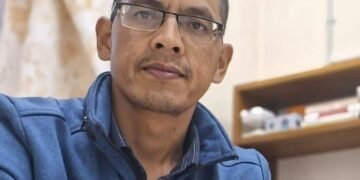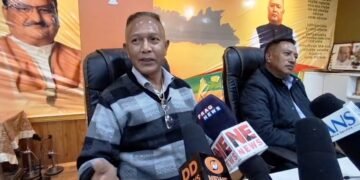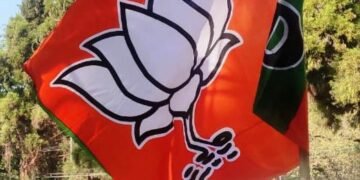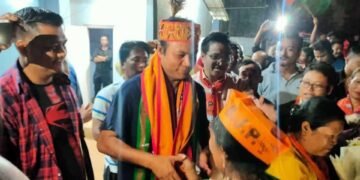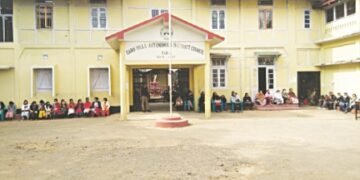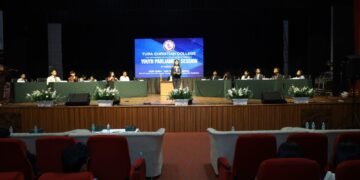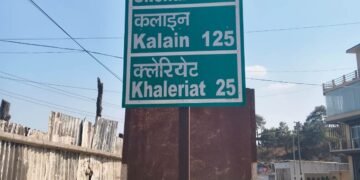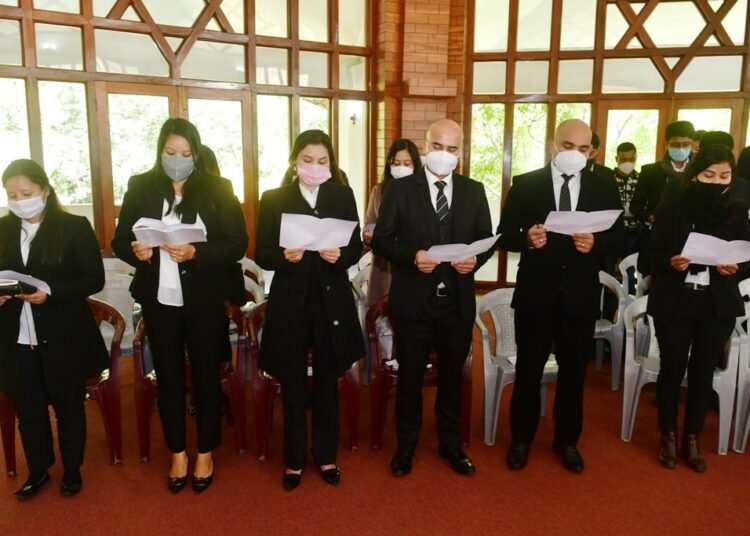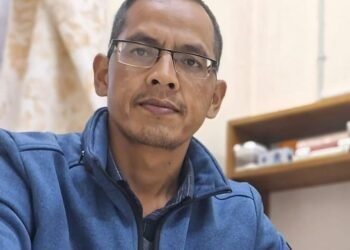Meghalaya today observe Constitution Day as Governor Satya Pal Malik led the celebrations from the Raj Bhavan and read the Preamble to the Constitution of India with officers.
At the Main Secretariat, Chief Secretary, Rebecca Venessa Suchiang led the gathering in reading out the Preamble in the presence of Secretary Planning, CVD Diengdoh, Secretary IPR, Matsiewdor W Nongbri, officers and staff of different departments.
Meanwhile, law students from NEHU and Shillong Law College took part in the Constitution Day programme organised by the Meghalaya State Judicial Academy in Shillong. A panel discussion on Article 14 of the Constitution of India “Equality before the Law and Equal Protection of the Law” was held to mark the day.
The Panellists included Dr. Batskhem Myrboh, Asst Professor, Political Science Department, Synod College, V. K. Jindal, Senior Advocate, High Court of Meghalaya and Vivek Syiem, Superintendent of Police (Shillong City), Shillong, East Khasi Hills District.
The Samvidhan Diwas programme was also organised by Krishi Vigyan Kendra, Ri-Bhoi at Khweng village which started with a pledge taking ceremony.
A talk on citizens’ duties was delivered by Bankitkupar Mukhim SMS (Fisheries) who dwelt on the formation and adoption of the Constitution on this day in 1949, which came to effect on January 26, 1950. He also reminded the gathering how to fulfill their duties laid by the Constitution and build India.
The second session of the programme was the National Campaign on the theme “Agriculture and Environment: the Citizen Face”.
During the programme Dr Utpal Barua SMS Horticulture gave a brief lecture on the role of citizen science in sustainable agriculture.
The University of Science and Technology Meghalaya’s school of law and research also celebrated Constitution Day with Justice Kalyan Rai Surana of the Gauhati High Court the chief guest.
Justice Surana delivered a talk on the ‘Constitution of India: the new challenges’ and unveiled a statue of Maulana Abul Kalam Azad, the first Education Minister of independent India.
Addressing the gathering, Justice Surana said that without economic justice, social justice is meaningless. “In the case of political justice, when we say about one man one vote, we see that 100 percent polling never happens and this is more so in the posh areas where affluent sections of the society lives,” he said.

